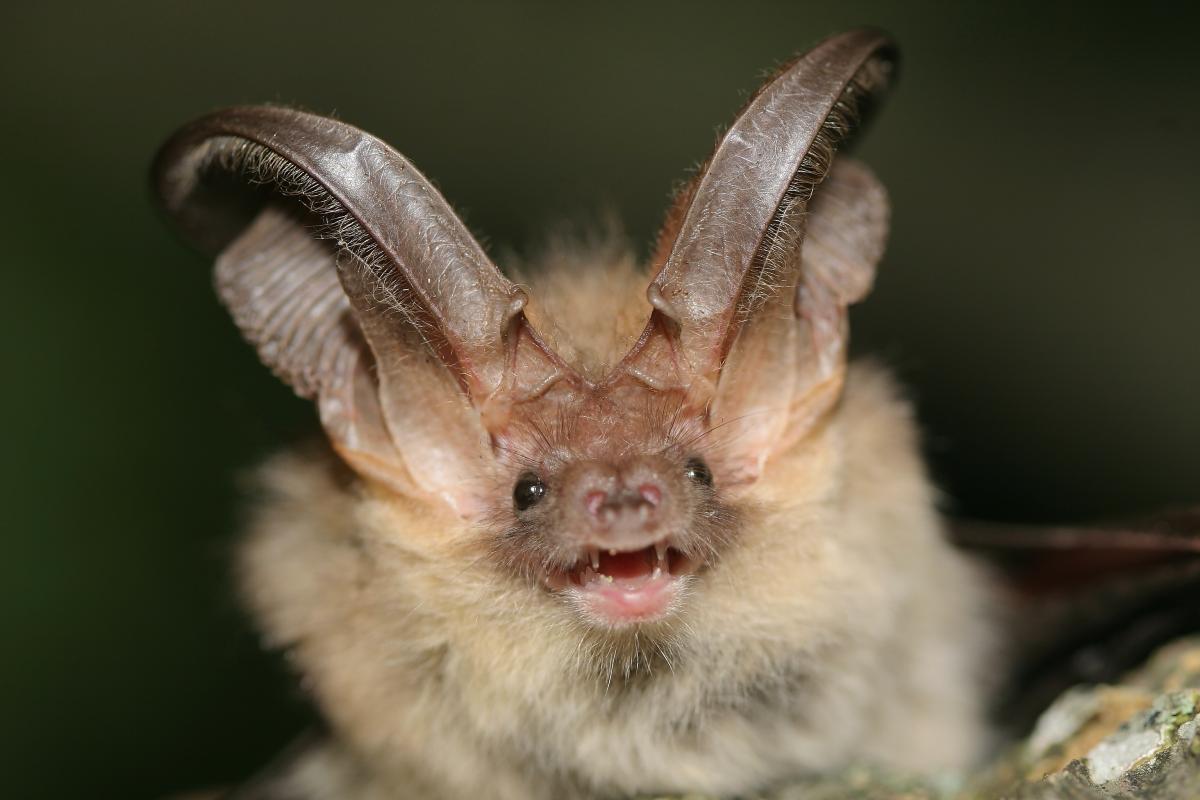
What Are Their Characteristics?
The ears of a brown long-eared bat are nearly as long as its body, but they aren’t always obvious. At rest, this species of bat curls its ears back or tucks them under its wings. It measures 37mm - 52mm in length (equivalent to an AA battery) and has broad wings and tail which allow slow, highly agile, hovering flight.
Brown long-ears are known as ‘whispering bats’ because their echolocation sounds are very quiet, and they can be difficult to pick up on a bat detector.
They can live for up to 30 years, but it’s the young bats that are greyish (not the older folk!) This means they can be confused with the very rare grey long-eared bats (Plecotusaustriacus).
Where Can They Be Found?
These bats are common and widespread throughout the UK, aside from exposed islands such as Orkney and Shetland.
Their approximate population is 245,000 with summer roosts located in older buildings, barns, churches and trees. Winter roosts can be found in caves, tunnels, mines, icehouses and occasionally trees and buildings.
What Does Their Diet Consist Of?
This species of bat forages in open deciduous and coniferous woodland, parkland and orchards for moths, beetles, flies, earwigs and spiders. As well as catching insects in free flight, brown long-eared bats are gleaners, often flying slowly amongst foliage to pick their prey off the tree.
They have a slow fluttering flight, sometimes they land on the ground to catch prey but, unfortunately, this makes them vulnerable to predators.
How Can We Help Protect Them?
Bats sadly suffered a population decline of around 70% during the last century. The decline of brown long-ears in Britain can be attributed to changing land use and the conversion of barns - resulting in a loss of suitable feeding and roosting habitats.
An increase in nocturnal insect prey numbers will help sustain bats throughout the year. You can help by introducing a mix of flowering plants, vegetables, trees and shrubs into your garden.
Want to conserve this species? We stock a wide range of equipment for bat workers and school ecology which we’ll ship out to you with the fastest possible delivery. If you’d like to know more about any of our products, please don’t hesitate to contact us.
Specialist Support
If you encounter an issue with bats, it’s best to approach The Bat Conservation Trust for guidance. You can also call the National Bat Helpline on 0345 1300 228, or contact an accredited ecologist. Additionally, our Wildcare team can provide specialist technical advice.


